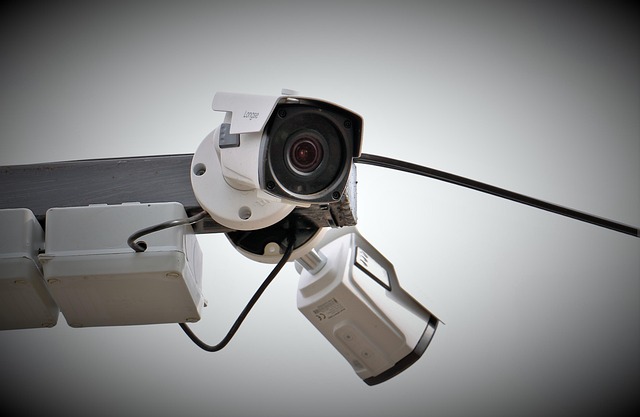Event security planning is a meticulous process ensuring confidentiality and discretion throughout an event's entire lifecycle. It involves risk assessment, access control, visitor management, secure communication channels, background checks, encrypted data transmission, emergency preparedness, and continuous protocol updates. By implementing robust strategies like encryption, staff training, clear protocols, granular access controls, secure meeting rooms, and incident response planning, organizers mitigate risks and maintain the highest standards of discretion, protecting sensitive information from unauthorized access or exposure.
In today’s digital age, ensuring confidentiality and discretion throughout an event’s lifecycle is paramount. From pre-event planning to post-event follow-ups, comprehensive event security planning forms the foundation of data protection. This article delves into critical aspects of event security, including risk assessment, access control implementation, secure communication channels, and incident response strategies. By understanding these components, organizers can safeguard sensitive information and maintain the discretion essential for successful events.
Understanding Event Security Planning: The Foundation of Confidentiality
Event security planning is a multifaceted approach that forms the cornerstone of ensuring confidentiality and discretion throughout an event’s lifecycle. It involves a comprehensive strategy to safeguard sensitive information, protect participants, and maintain the integrity of the event. A robust event security plan begins with identifying potential risks and vulnerabilities unique to the event, be it a corporate conference, a cultural festival, or a high-profile gathering.
This planning process includes developing protocols for access control, visitor management, and secure communication channels. By integrating discreet measures such as background checks, encryption of data transmission, and limited access areas, organizers can create an environment that fosters confidentiality. Effective event security planning also considers emergency preparedness, with well-rehearsed response strategies in place to mitigate any potential threats, ensuring the smooth execution of events while upholding the highest standards of discretion.
Risk Assessment: Identifying Potential Threats to Data Discretion
Event organizers must conduct a thorough risk assessment as part of their event security planning to identify potential threats to data discretion. This involves evaluating every stage of the event lifecycle, from pre-planning and setup through execution and post-event analysis. By identifying vulnerabilities, such as unauthorized access, data breaches, or accidental exposure, organizers can proactively mitigate risks with robust security measures.
A comprehensive risk assessment should consider both internal and external factors, including physical security, digital infrastructure, and stakeholder cooperation. Implementing encryption for sensitive data, conducting regular staff training on cybersecurity best practices, and establishing clear communication protocols are key strategies to ensure confidentiality throughout the event lifecycle.
Implementing Access Controls: Who Should Have What Information?
Effective event security planning involves implementing robust access controls, ensuring that only authorized individuals have access to sensitive information and critical areas throughout the event lifecycle. This starts with a clear definition of roles and responsibilities among staff, volunteers, and vendors. Each party should be granted access to only what is necessary for their specific duties, minimizing potential exposure points.
For instance, event organizers may require access to all event logistics and financial details, while venue staff might need to know the layout and emergency procedures but not sensitive guest information. Vendors, such as caterers or entertainment acts, should have restricted access to ensure confidentiality. This granular approach ensures that even if an unauthorized individual gains entry, they can’t exploit their access beyond their assigned scope.
Secure Communication Channels: Protecting Conversations and Data Transfer
Secure Communication Channels play a pivotal role in maintaining confidentiality and discretion throughout an event’s lifecycle, especially during high-stakes gatherings where sensitive information exchange is inevitable. To safeguard conversations and data transfer, organizers must implement robust encryption protocols for all digital communications, ensuring that only authorized parties can access transmitted data. This includes the use of end-to-end encrypted messaging apps, virtual private networks (VPNs) for secure internet connections, and encrypted email services to protect both incoming and outgoing messages.
Moreover, event security planning should encompass physical measures like secure meeting rooms with access controls and encrypted conference calls equipped with robust authentication mechanisms. By integrating these security measures into the event’s infrastructure, organizers can significantly reduce the risk of unauthorized access or interception, fostering an environment conducive to open and honest discussions without compromising privacy.
Incident Response Planning: Preparing for and Mitigating Breaches
Event organizers must integrate incident response planning into their event security strategy, anticipating and preparing for potential breaches in confidentiality. This proactive approach involves identifying risks, such as data leaks or physical intrusions, and developing protocols to mitigate them effectively. By establishing clear communication channels, designating emergency contacts, and conducting regular drills, organizations can ensure swift and discreet responses to incidents, minimizing damage and maintaining the integrity of sensitive information.
A robust incident response plan also includes implementing access controls, encrypting data, and securing physical spaces. Regular reviews and updates are essential to keep up with evolving threats and technology. Moreover, educating staff and volunteers about security protocols and best practices for handling confidential materials contributes to a culture of discretion, reinforcing the commitment to protecting sensitive information throughout the event lifecycle.
Effective event security planning is paramount to safeguarding sensitive information throughout an event’s entire lifecycle. By implementing robust risk assessment, access control measures, secure communication channels, and well-rehearsed incident response strategies, organizers can ensure confidentiality and discretion, fostering a safe environment for all participants. These essential practices are the cornerstones of comprehensive event security, enabling seamless experiences while protecting valuable data from potential threats.
